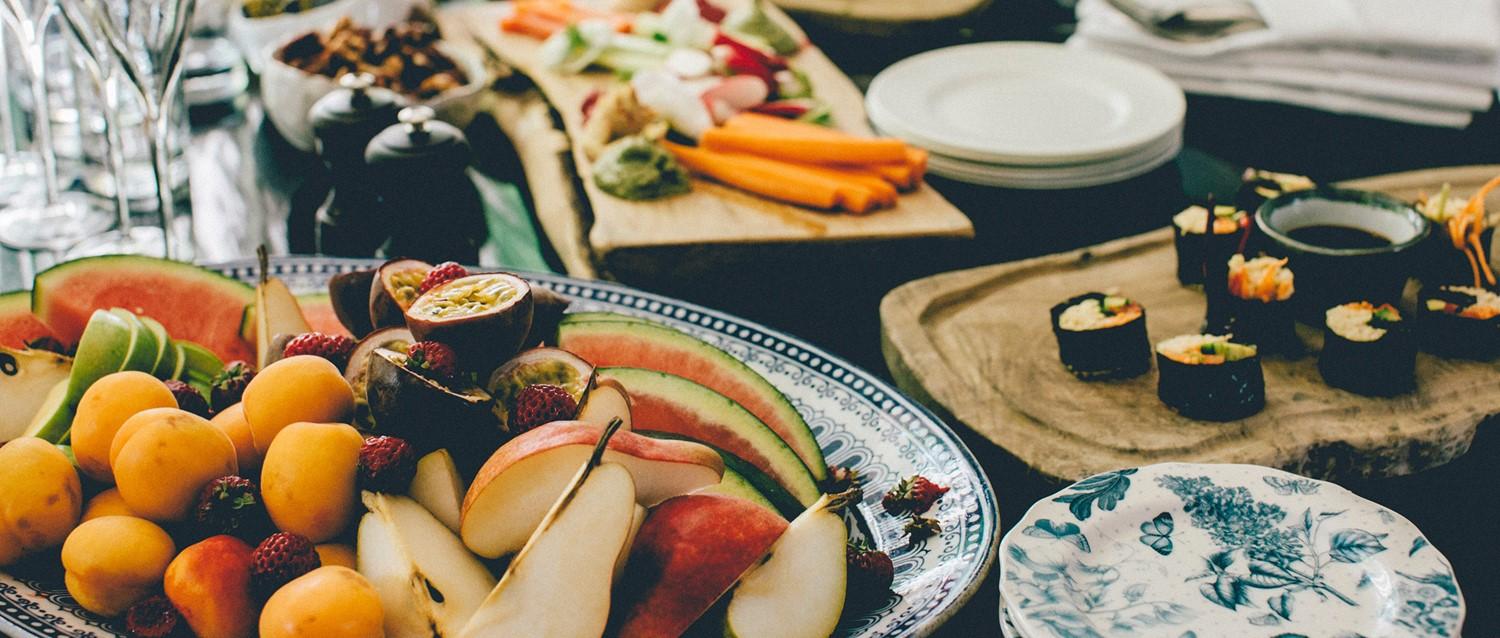
The worst foods to eat when you're feeling stressed
Peer reviewed by Dr Sarah Jarvis MBE, FRCGPAuthored by Rose Constantine Smith, ANutrOriginally published 9 May 2018
Meets Patient’s editorial guidelines
- DownloadDownload
- Share
- Language
- Discussion
We've all been guilty of reaching for the biscuit tin after a particularly trying day. But can relying on convenience food to help you feel calmer make the problem worse? We explore the foods to avoid when you're feeling frazzled.
In this article:
We tend to choose unhealthy foods when we're feeling stressed - that's been backed up with research. But in the long run, we are likely making our poor concentration and anxiety worse.
One study found a correlation between high stress levels and diets which contained little in the way of fruit and vegetables. However, it's hard to know whether it was the food causing the research participants to feel stressed, or if their low mood in the first place caused them to make these dietary choices.
Nevertheless, Stephen Buckley, head of information at mental health charity Mind, believes there is a link between the foods we choose and how we feel:
"It's widely accepted that there is a connection between what we eat and how we feel. We know that fluctuations in blood sugar levels are associated with changes in mood and energy. And there is also research to suggest that getting enough of certain vitamins, minerals and essential fatty acids can be important in maintaining good mental health," he explains.
Continue reading below
Blood sugar and stress explained
When we eat foods that contain refined carbohydrates (think: white pasta, white bread, cakes, pizza, etc), it causes a big and sudden increase in blood sugar. In the short term, this can stimulate release of endorphins - so-called 'feel-good' hormones. But the effect is short-lived.
When our blood sugar suddenly becomes high, it causes a lot of the hormone insulin to be released - which allows our cells to use sugar for energy. This process very quickly brings our blood sugar right back down, sometimes to a lower level then it was before we ate.
This can have a big impact on our mood. When levels of sugar are too high it can make us feel unable to concentrate and anxious. Then when blood sugar levels suddenly drop it often makes people feel low in mood and energy.
Gut and brain
Back to contentsEvidence is also starting to suggest that if your gut isn't happy, it is likely that your head isn't either. Scientists call this the 'gut-brain axis'.
For a healthy gut, we need to be eating foods which help good bacteria to thrive and overthrow the bad ones. Unfortunately, the foods we often associate as being comforting are those which do not support these good bacteria. This is bad news if you're already stressed out, because 'good' gut germs have been shown to play a role in creating serotonin, a chemical that makes us feel happy.
Continue reading below
The foods to avoid
Back to contentsThe following foods can cause inflammation within the body, reduce our good gut bacteria and, in several studies, seem to correlate with higher levels of stress and anxiety.
Sugary foods
Any processed food with more than 5 g of sugar per 100 g is classed as containing a medium level of sugar and is worth reconsidering. Regular offenders are snack bars, cereals, cakes and biscuits, fizzy drinks and fruity yoghurts.
Foods high in saturated fat
Any processed food with more than 1.5 g or more of saturated fat per 100 g is worth avoiding in times of stress. Examples include: pizza, ready meals, crisps, snack bars and pastry.
White carbs
Ditch white bread, rice and pasta. All of these have been processed to remove the wholegrain goodness that our gut bacteria love. Replace with brown/wholemeal/wholegrain versions instead.
Additionally, caffeinated drinks can increase feelings of anxiety in some people. If you're feeling stressed out, it might be worth trying decaffeinated drinks instead for a week or two to see if it makes a difference.
Stress-busting foods
Back to contentsDon't worry though; there are plenty of foods you can include in your diet which can improve gut health and potentially reduce your stress levels. These include:
High-fibre foods
Foods high in fibre provide a source of nourishment to your good gut bacteria.
Try: vegetables (with the skin on), whole grains, pulses, nuts and seeds.
Healthy fats
Good fats, such as omega 3, have been shown to improve brain function and, with it, mood.
Try: oily fish such as salmon, mackerel and sardines, nuts and seeds (especially chia and flaxseeds).
Colourful fruit and vegetables
Aim for a plate that's as colourful as possible. Fruit and vegetables are high in antioxidants which help to reduce inflammation.
Look for: those which are vibrant in colour, as the deeper the colour, generally the richer their nutritional content.
Live foods
Evidence suggests that eating fermented foods can help maintain a healthy gut.
Try: live yoghurts, pickled foods like sauerkraut and kimchi, miso soups, and dark chocolate.
Continue reading below
Putting it all into practice
Back to contentsIt is easier said than done when making changes to your diet, but Buckley suggests:
"Good ways to promote a healthy diet and good mental health are to keep regular meal times, drink enough water each day and cut down on mood-altering products such as tea, coffee and alcohol. Aiming to have a diet that has a good mix of protein, slow-release carbohydrates like wholegrains or seeds and plenty of vegetables and fruit will also help."
Try the following tips too:
Find a healthier alternative
It's no good trying to cut out your favourite snack and replacing it with something you don't really like, as this will do nothing for your mood. Instead, find something that you like to eat that your gut does too.
For example, if you are a sucker for jelly sweets try swapping for a small handful of dried fruit.
Fail to prepare and prepare to fail
If you always have healthy food options available (particularly the ones you like) then you are less likely to find yourself running to the shop for your old pick-me-up.
It's been shown that having to choose foods can increase stress levels. But if you plan ahead and have a nourishing snack ready to go, not only do you not have to think about it, you are less likely to make a choice that you then feel guilty (and stressed!) about.
Reflect back
Pay attention to how you feel after eating and drinking. It could be a good idea, if you suffer from anxiety and stress, to keep a food and mood diary. That way at the end of the week you can reflect back and you may find there are some trigger foods which are affecting your mood.
Video picks for Stress
Patient picks for Stress

Mental health
Why 'Christmas creep' stresses us out
Christmas can be the most wonderful time of the year, but it can be challenging. Shops are bringing out gifts and decorations earlier than ever and for some people, it's a reminder of how anxiety-inducing and expensive the festive season can be.
by Lydia Smith

Mental health
Why are UK students the most stressed over studying maths?
A recent global survey revealed that UK students are more anxious about mathematics than anywhere else in the world. Maths anxiety is a psychological barrier that's affecting many children from their early school years. Why are children forming negative perceptions of maths in the UK, and what concerns and challenges does this raise?
by Amberley Davis
Article history
The information on this page is peer reviewed by qualified clinicians.
9 May 2018 | Originally published
Authored by:
Rose Constantine Smith, ANutrPeer reviewed by
Dr Sarah Jarvis MBE, FRCGP

Ask, share, connect.
Browse discussions, ask questions, and share experiences across hundreds of health topics.

Feeling unwell?
Assess your symptoms online for free
Sign up to the Patient newsletter
Your weekly dose of clear, trustworthy health advice - written to help you feel informed, confident and in control.
By subscribing you accept our Privacy Policy. You can unsubscribe at any time. We never sell your data.